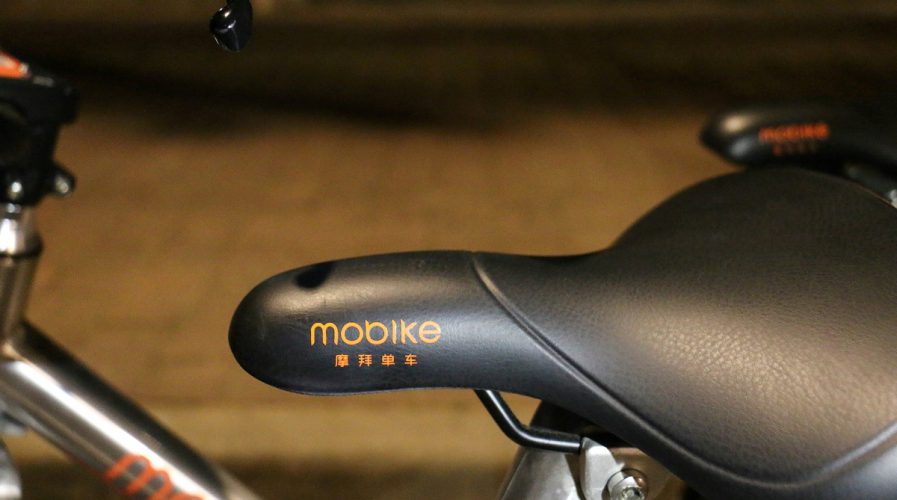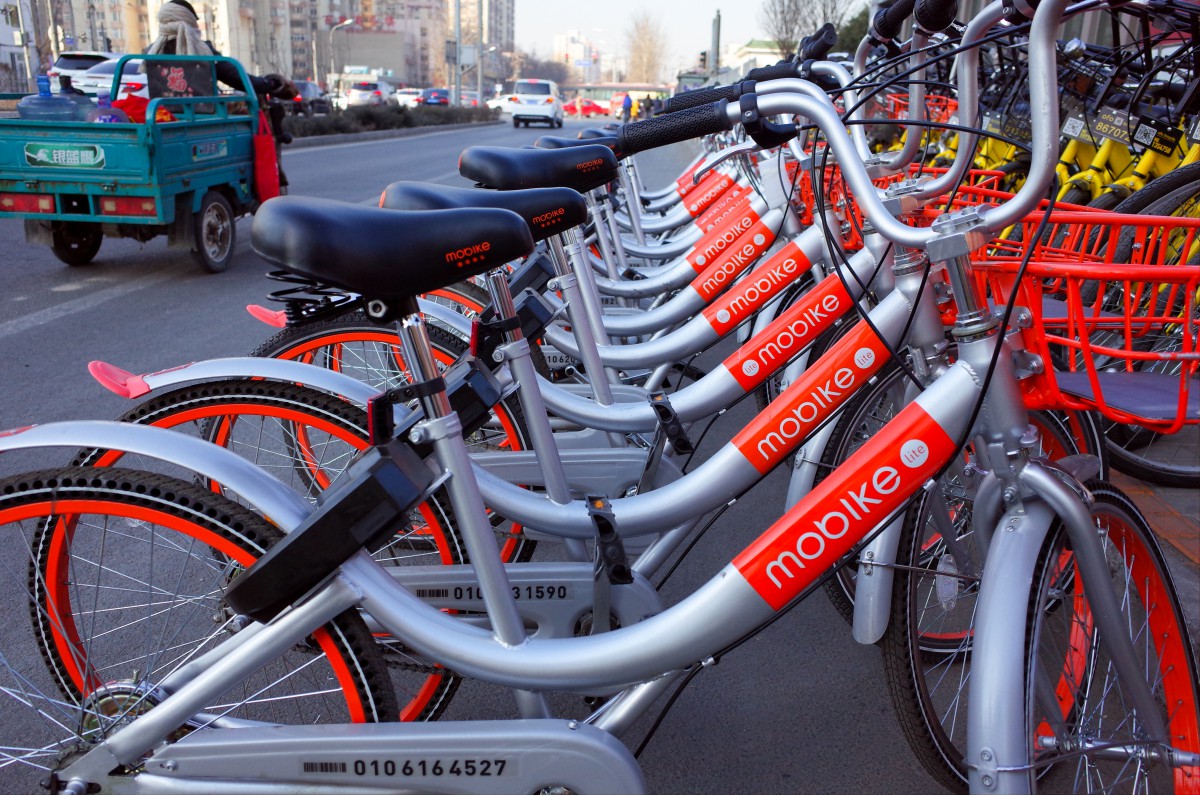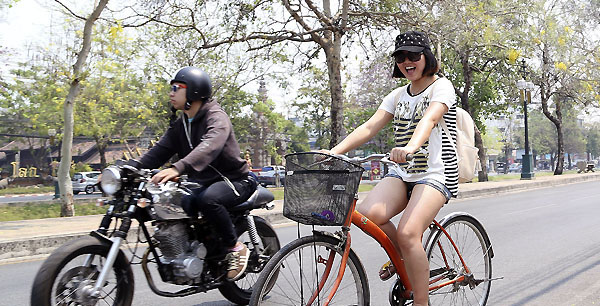
A Mobike sign is seen in Guangzhou, China. Source: Reuters
Thailand: Mobike partners with local players to drive sustainable transport
MOBIKE, a Chinese giant in its cutthroat bike-sharing industry, announced that it would begin operations in Thailand through a strategic partnership with several local organizations in order to deliver sustainable and environmentally-friendly transport options for locals and tourists.
The announcement revealed that the Chinese company would be working with mobile phone operator Advanced Info Service, property developer Central Pattana Group, and Kasetsart University in Bangkok. The first two months of service will be free, according to the company in a statement, courtesy of a promotion sponsored by the university and Central Pattana. After the promotion period, users will be charged THB10 (US$0.30) for every 30 minutes.

Bike-sharing has become extremely popular in China. Source: Shutterstock/tangxn
Its operations would be offered first on Kasetsart University’s campus in order to test out its viability among staff, students and visitors. Soon after, the smart bikes will be available throughout the country in strategic locations. Visitors to Central Pattana’s locations would also be able to find these bicycles, including the company’s Central World mall, which would be the first shopping mall in the world to have Mobikes.
“Mobike is excited to partner with leading Thai businesses and institutions to bring our smart, sustainable mobility solution into the country,” said Jo Xia, Mobike’s founder and chief technology officer, in a statement.
“Our success in Thailand will be driven by these partnerships, our use of the most advanced technology in the industry, and our experience leading the largest mobile-enabled IoT network in the world.”
SEE ALSO: New rules in the works for freewheeling bike-sharing startups
Mobike first burst onto the scene in China and April 2016, and soon got locked in a battle with other players in China, such as Ofo, Bluegogo and Xiaoming Danche. Mobike and other players reimagined the concept of urban cycling by providing the infrastructure needed for bikers, partially in response to the dangerously toxic air in Chinese cities, but also “last mile” transportation issues that are rampant in many developing countries.
Mobike’s bicycles are equipped with geo-location sensors that are hooked up to the company’s Internet of Things network. This gives them the capabilities to track and monitor the location and condition of each bicycle, and ensure every location has an adequate supply of bikes.

A Chinese tourist rides on a bicycle during a tour in downtown Chiang Mai. Pic: AP.
According to the company, the bicycles have proven invaluable for cities looking to cut down on not only congestion – which China and Thailand’s major cities have in spades – as well air pollution. Both Kasetsart University and Central Pattana have remarked that part of the reasoning for working with Mobike has to do with their commitment to improving the environment. Cycling, unlike other forms of transportation, is famous for its zero carbon production, making it an especially environmentally friendly form of travel, especially in highly congested urban areas.
SEE ALSO: Chinese bike-sharing platform Mobike rides into the UK
“Mobike will help make Bangkok a greener city, and further enhance its reputation as a world-class tourist destination,” said Nattakit Tangpoonsinthana, executive vice-president of marketing at Central Pattana Group, in a statement.
“We look forward to seeing Mobike riders at CentralWorld and many more of properties in the future.”
READ MORE
- Ethical AI: The renewed importance of safeguarding data and customer privacy in Generative AI applications
- How Japan balances AI-driven opportunities with cybersecurity needs
- Deploying SASE: Benchmarking your approach
- Insurance everywhere all at once: the digital transformation of the APAC insurance industry
- Google parent Alphabet eyes HubSpot: A potential acquisition shaping the future of CRM
